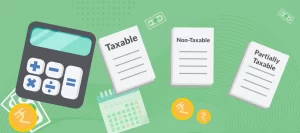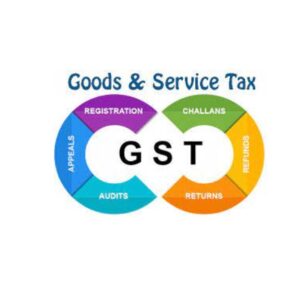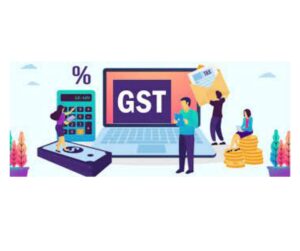
User Intent
Taxpayers in India often struggle to decide between the Old Tax Regime and the New Tax Regime. With frequent changes in tax policies, selecting the most beneficial regime requires careful evaluation. This article provides a detailed, step-by-step comparison to help individuals and businesses make an informed decision for FY 2023-24.
Introduction
Income tax planning is an essential part of financial management. With the introduction of the New Tax Regime in 2020, taxpayers now have the flexibility to choose between two tax structures. Each regime has its own set of benefits, limitations, and applicability, making it crucial to select the one that aligns with your financial goals.
This article provides a clear breakdown of both regimes, their applications, advantages, and drawbacks, along with a comparative analysis to guide your decision.
Definition
Before making a choice, let’s define the two tax regimes:
- Old Tax Regime: The traditional tax structure allows individuals to claim multiple tax deductions and exemptions under various sections of the Income Tax Act, 1961.
- New Tax Regime: Introduced in Budget 2020, this regime offers lower tax rates but removes most exemptions and deductions.
Both systems cater to different taxpayer profiles, requiring a thoughtful selection process.
Application
Who Should Opt for the Old Tax Regime?
This regime suits individuals who claim significant deductions under:
- Section 80C (Investments in PPF, EPF, LIC, ELSS, etc.)
- Section 80D (Health Insurance Premiums)
- House Rent Allowance (HRA)
- Standard Deduction of ₹50,000 (For salaried individuals)
- Home Loan Interest (Section 24b)
Who Should Opt for the New Tax Regime?
This regime is beneficial for:
- Individuals with lower investments in tax-saving instruments.
- Salaried employees who do not claim HRA, LTA, or other deductions.
- Those who prefer a simplified tax process without documentation hassles.
- Individuals in lower tax slabs, as the new regime offers reduced tax rates.
Benefits
Advantages of the Old Tax Regime
Maximizes Deductions: Allows taxpayers to reduce taxable income through multiple deductions.
Encourages Savings & Investments: Promotes long-term financial security via investment-linked deductions.
Ideal for Homeowners: Interest on home loans is deductible, reducing taxable income.
Tax Planning Flexibility: Salaried individuals can leverage tax-saving strategies for financial planning.
Advantages of the New Tax Regime
Lower Tax Rates: Reduced tax rates apply across multiple slabs.
Simplified Compliance: No need for extensive tax documentation or proof submission.
Higher In-Hand Salary: Since no deductions are required, employees receive more take-home pay.
Ideal for Non-Investors: Best suited for individuals who do not invest in tax-saving instruments.
Limitations
Drawbacks of the Old Tax Regime
Higher Tax Rates: The tax slabs under this regime are comparatively higher.
Complex Documentation: Requires maintaining receipts, proofs, and investment details for deductions.
Rigid Investment Strategy: Encourages investments based on tax benefits rather than financial goals.
Drawbacks of the New Tax Regime
No Deductions or Exemptions: Lacks tax-saving benefits available under the old regime.
Not Beneficial for High-Investment Individuals: Those who invest heavily in tax-saving instruments might lose out on tax benefits.
Not Ideal for Families with High Expenses: Families benefiting from exemptions like HRA and education allowances may find this regime less advantageous.
Comparative Table
| Feature | Old Tax Regime | New Tax Regime |
|---|---|---|
| Tax Slabs | Higher Rates | Lower Rates |
| Deductions & Exemptions | Available | Not Available |
| HRA & LTA Benefits | Available | Not Available |
| Documentation Requirement | High | Low |
| Best for | High-investment taxpayers | Low-investment taxpayers |
| Tax Planning Flexibility | Yes | No |
Conclusion
Choosing between the Old and New Tax Regime depends on your income level, tax-saving habits, and financial goals. If you invest in tax-saving instruments and claim significant deductions, the Old Tax Regime is beneficial. However, if you prefer lower tax rates with minimal compliance, the New Tax Regime is a better option.
Before making a final decision, evaluate your annual income, deductions, and long-term financial plans. Consider using an income tax calculator to compare tax liabilities under both regimes for accurate decision-making.
FAQs
1. Can I switch between the Old and New Tax Regime every year?
✅ Yes, salaried employees can choose a regime annually. However, individuals with business income can switch only once in a lifetime.
2. Is HRA available under the New Tax Regime?
❌ No, HRA and other exemptions are not available in the New Tax Regime.
3. Who benefits the most from the New Tax Regime?
📌 Individuals with no or minimal deductions, freelancers, and those preferring simplified tax filing benefit the most.
4. Should I use a tax calculator before choosing a regime?
✅ Yes, using a tax calculator helps estimate your tax liability and determine the best regime.
5. Can I claim 80C deductions under the New Tax Regime?
❌ No, Section 80C deductions (like EPF, PPF, and ELSS) are not allowed under the New Tax Regime.
To Visit https://www.incometax.gov.in/

For further details access our website https://vibrantfinserv.com/


